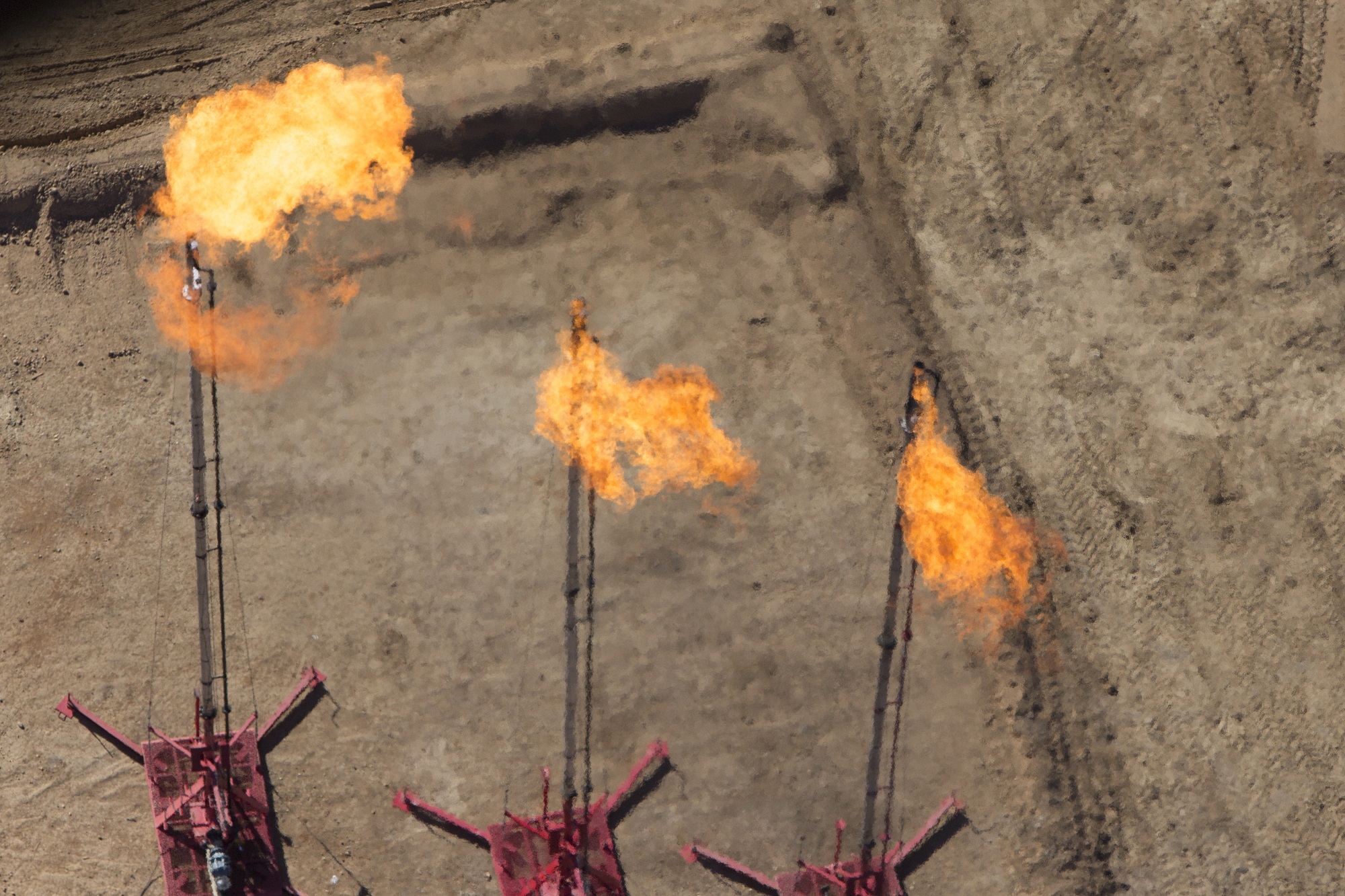While we have been hard at work moving cities and states to clean, renewable energy, the oil and gas industry has been pushing forward a disastrous agenda that will line their executives’ pockets while putting communities and the environment at risk. The United States has become the largest gas-producing country on earth, and the majority of that gas is for export -- putting American communities at risk, and shipping additional climate pollution and health risks overseas. There is currently a plan to expand these export markets, with 20 massive new gas export facilities proposed. In order to avert the worst impacts of the climate crisis and advance environmental justice, we must stop expanding the market for oil and gas. Even as we reduce climate emissions in the power sector, we won’t meet our climate goals if the extraction of oil and gas continues to grow.
The gas industry has worked hard to propagate the term “natural gas” so that gas is not perceived to be as dirty as other fossil fuels. But when you look at the devastating impacts gas has on our climate, and the health and safety of our communities, a different narrative becomes clear. Gas is not a bridge to anywhere but the past. It is a dirty fossil fuel, just like coal and oil. We should call it what it is: fracked gas. The gas industry isn’t stopping its reckless expansion, spending hundreds of millions of dollars to convince lawmakers that it is clean and safe. But why would we be expanding fossil fuels in a time of the climate crisis? Fracked gas exports are a disaster, and if the gas export terminals are allowed to be built, they will continue a legacy of environmental racism in the Gulf Coast and threaten our ability to avert the worst impacts of climate change. Between clean energy and energy efficiency improvements, the US already has more energy than we need with clean energy and energy efficiency to power our communities. The world does not need fracked gas exports -- and they are certainly not worth the risks to our air, water, communities, and climate.
Fracked gas headed for export mostly comes from the Permian Basin in Texas and New Mexico, where it impacts Indigenous communities. The gas is transported to massive export facilities in the Gulf South via pipeline, which harms the land and waterways it passes through.
The fracked gas cycle looks like this: Risky fracking operations extract gas, andtransport it under high pressure through hundreds of miles of pipelines to facilities where it is condensed through extreme cooling into LNG (liquified natural gas), which requires exorbitant amounts of electricity. The gas is shipped overseas on large tankers, where it is then brought back to a gas state, again requiring intensive energy use. Think of all the toxins and emissions produced by the extraction, pipelines, big facilities, and shipping. Gas companies then use even more electricity to turn LNG back into gas, process it, and pipe it to homes and gas power plants. All along this cycle, methane -- a greenhouse gas 87 times more potent than carbon dioxide -- is released into the atmosphere, along with co-pollutants that cause respiratory issues and other health problems in nearby communities.
Financially, fracked gas is a house of cards that could collapse at any moment. We know the economics are on shaky ground and the industry is looking for any pathway to profit, regardless of the cost to public health and the climate. We are seeing investors drop financing and banks refusing to back these projects. They don’t want to invest in projects that are perpetuating the climate crisis or the injustices that come with fossil fuel extraction. Sempra Energy recently delayed its Final Investment Decision (FID) on its proposed Port Arthur, Texas export terminal for the second time to 2022. The house of cards is beginning to topple.
Our movement is strong and growing. The communities where these fracked gas terminals are slated to be built are predominantly communities of color, where people are living with the cumulative impacts of pollution from industrial zones, which puts them at higher risk for cancer and respiratory issues. Struggles against gas export terminals are huge multiyear fights by activists on the ground who are fighting for their homes and their lives -- and they will never quit.
When a proposed Annova LNG Brownsville terminal in Texas was canceled, Juan Mancias, Chairman of the Carrizo Comecrudo Tribe of Texas said powerfully: “Ayema ahua’p pele maute alpa Esto’k Gna. It is a good day to be a human being.” The Carrizo Comecrudo Tribe of Texas and Brownsville community members are now calling on the president of Australia-based Macquarie Bank to respond to their concerns for another proposed fracked gas export terminal the bank is funding that would pollute their ecosystems and harm public health. Watch:
WATCH: Will @MacquarieBank honor their commitment to meet with @CComecrudo & Brownsville community members to discuss the dirty proposed Rio Grande LNG export terminal they are bankrolling? #DefendTheGulf #StopRioGrandeLNG pic.twitter.com/a9yrRVfGGs
— Texas Sierra Club (@TexasSierraClub) April 22, 2021
The Biden administration also has the opportunity to put a halt to the facilities, and we need to push them to have the ambition to do so. Take action now and tell President Biden to halt fracked gas and crude oil exports immediately.
I envision a movement strong enough to bring about climate justice and stop the expansion of fossil fuels. In the long term, we’re winning the struggle for a beautiful, healthy, climate-resilient future. Join us and let’s keep going!
